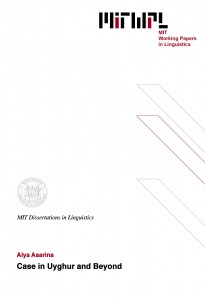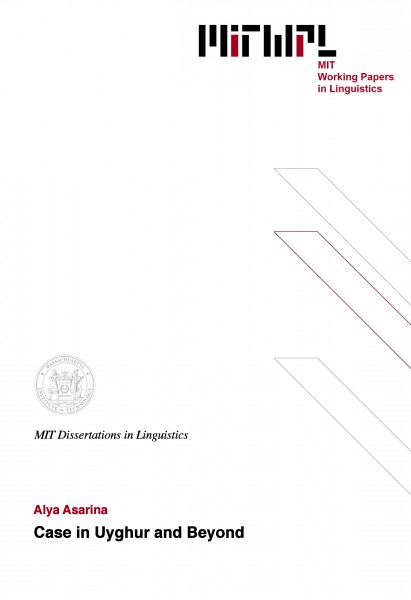Case in Uyghur and Beyond
Alya Asarina, 2011
The focus of this dissertation is the syntax and morphology of case, and how case interacts with A-movement and agreement. In chapter 1, I argue on the basis of novel data from Uyghur that noun phrases bearing structural case can still be eligible for raising. I show that raising in Uyghur is EPP-driven, and does not trigger overt agreement. Thus, we must either conclude that pure EPP movement does not depend on Agree (cf. Richards 2009, a.o.), or abandon the Activity Condition proposed by Chomsky (1998, 2001). I suggest that phenomena that have been attributed to the Activity Condition can be reanalyzed by means of other principles, such as the Phase Impenetrability Condition (Chomsky 1998, 2001).
In chapter 2 (based on joint work with Jeremy Hartman), I argue in favor of Chomsky’s (2001) weak version of the Phase Impenetrability Condition, and against Chomsky’s (1998) stronger version of the Phase Impenetrability Condition more commonly assumed. The argument is based on case assignment and agreement in Uyghur genitive subject con- structions. I furthermore suggest that adopting Chomsky’s (2001) version of the Phase Impenetrability Condition makes the concept of a weak phase head unnecessary (cf. Richards 2009).
In chapter 3, I propose that quirky case in Faroese is not assigned immediately when a noun phrase enters the derivation. Rather, Faroese quirky case depends on a higher functional projection. This helps explain why quirky case-marked noun phrases in Faroese can trigger number agreement and dependent case licensing, and why quirky case can fail to be assigned in Faroese passive and raising constructions.
In chapter 4, I present the results of a study of multiple case assignment in Russian Right Node Raising constructions. I show that the morphological system can rule out multiple case assignment when no systematically syncretic form is available, and propose a way of extending Distributed Morphology to capture this phenomenon.

